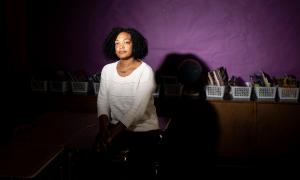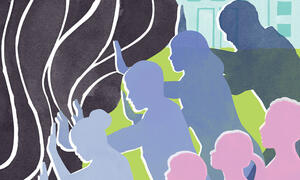I had lunch with my preschooler recently. In line with my daughter was a little girl dressed in an embroidered churidar suit, a traditional garment in Southeast Asia. As she walked, the decorations around her collar and the gold bracelets around her wrist jingled merrily with each step. I told her how I loved her outfit. The assistant teacher leaned over and explained that the little girl was celebrating something, “I think the birthday of a god.” She looked down at the girl, “Isn't that right?” The girl looked blankly back. I then quickly interjected, “Honey, are you celebrating Diwali?” At that, the little girl nodded, grinned widely and skipped over to her table. The assistant teacher looked up at me and stared perplexed, “How did you know that?”



